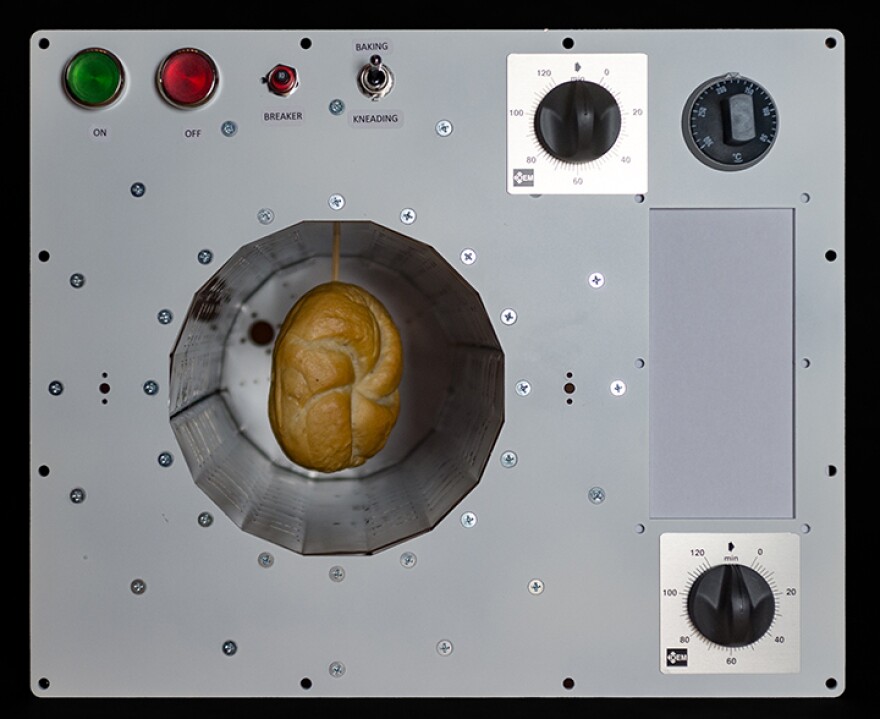Crumbs may seem harmless here on Earth, but they can be a hazard in microgravity — they could get in an astronaut's eye, or get inhaled, causing someone to choke. Crumbs could even float into an electrical panel, burn up or cause a fire.
That's part of the reason why it was a very big deal in 1965 when John Young pulled a corned beef sandwich out of his pocket as he was orbiting the earth with Gus Grissom.
"Where did that come from?" Grissom asked Young.
"I brought it with me," Young said.
Young took a bite and then microgravity took over, spreading bread crumbs throughout the spacecraft.

Today, instead of bread, astronauts usually eat tortillas: They don't crumble in the same way and they're easy to hold with one hand as the astronaut floats about.
But for many Germans, tortillas just don't cut it. So when a man named Sebastian Marcu heard that German Astronaut Alexander Gerst is returning to the International Space Station in 2018, that got him thinking: "Shouldn't we do something to enable him to have fresh bread in space?"
Bread is a really big deal in Germany — there are thousands of variations of different kinds of bread there. To Marcu, a German astronaut in space without fresh bread seemed like a preventable problem.
Marcu was working in the space sector, and he and his friend, an engineer, started a company called in March 2017.
They're partnered with the German Aerospace Center, which is basically Germany's NASA. Their goal is to make an oven that can successfully bake dough on the International Space Station by 2018.
But there are a lot of obstacles that make baking in space difficult.
First, the oven needs to function on about a tenth of the power an oven here on earth does.
And it's pretty much impossible to preheat the oven, because if it gets hot and then the door is opened, a giant hot air bubble could leave the oven and float into the spacecraft.
"It could just sit there in mid air and the astronauts could basically burn himself if he flies through it," Marcu says.
Which is clearly not ideal.
Then there's the problem of the dough — at low heat, bread has to bake for a longer period of time, but the longer it bakes, the drier it gets. And crumbling must be avoided at all costs because of the havoc bread wreaks in space.
Despite all the technical challenges, Marcu predicts that his company will be able to have Alexander Gerst bake the first loaf of sourdough in space next year.
"It's not just about making one German astronaut happy with fresh bread," Marcu explains. "There's really a deeper meaning to bread in space."
He says bread is ubiquitous. It's made its way onto our dinner tables, into our religion, our slang. Breadwinner and dough stand for money, for well being, for quality of life. We break bread with strangers as a gesture of good faith.
"Well, it would definitely be a big symbol of peace to break bread with an alien life form I think," he says.
But most importantly to Marcu, freshly baked bread in space will offer astronauts a little slice of home.
Paige Pfleger reports for WHYY's health and science show, The Pulse. This story originally appeared on an episode of its podcast called Leap of Space.
Copyright 2017 WHYY



